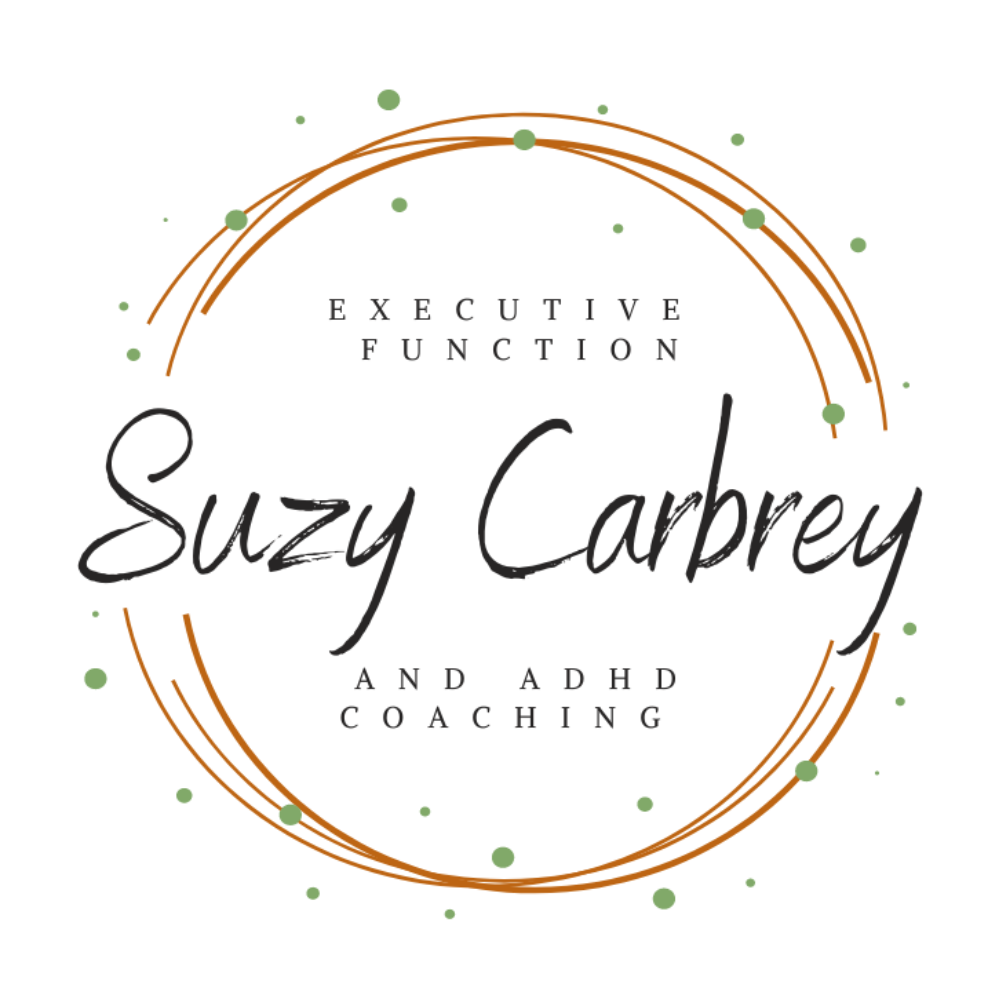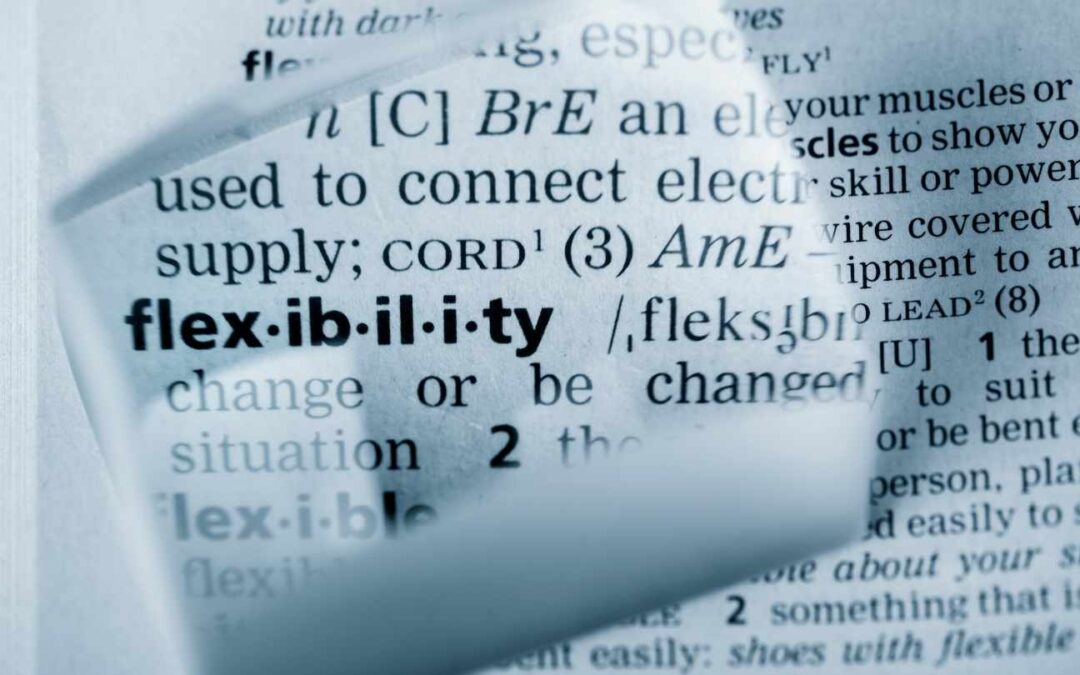If you’ve ever looked around and wondered, “How is everyone else managing this?” you’re not alone. Whether it’s the coworker who checks off every task before lunch, the neighbor whose house always looks spotless, or the parent at school pickup who somehow remembered spirit day, it can feel like everyone else got the manual for how to function.
And when you’re living with executive functioning challenges, it’s easy to assume the problem is you. That you’re lazy, disorganized, or simply not trying hard enough.
But here’s something important, something that can shift the whole way you approach daily life:
You don’t have to do things in the same time, place, or manner as anyone else.
That includes your coworkers, your partner, your parents, your friends, your neighbors, or even the idealized version of yourself from five years ago. Let’s break that idea apart and talk about how embracing a more personalized, flexible approach can reduce shame, improve follow-through, and help you get things done in ways that actually work for your brain.
Why This Idea Matters for Executive Functioning
- Keep trying the same strategies that don’t stick
- Blame yourself for being inconsistent
- Avoid starting at all because it feels pointless
Part 1: You Don’t Have to Do Things in the Same Time
There’s a lot of pressure to do things at the “right” time, usually early, quickly, and predictably. But ADHD and executive functioning differences often mean you operate on what’s sometimes called “now” and “not now” time. Your brain may resist doing things early because the urgency isn’t real yet. You might also be more alert or focused at times when other people are winding down.
So what if you let go of the idea that you have to do things when everyone else does?

Examples of Time Flexibility:
- Meal prep at 9 pm if that’s when you have the energy, instead of Sunday afternoon like Pinterest recommends.
- Paying bills mid-week during a lull in your workday instead of trying to force it on the weekend when your brain is fried.
- Planning your week on a Thursday, not Monday, because your brain needs to “ramp up” first.
What Helps:
- Energy mapping: Track when you feel most focused, creative, or physically energetic throughout the day or week. Build routines around that—not an ideal you.
- Timers and reminders: If you don’t feel time passing, external supports like time timers or digital nudges can help you start and stop more easily.
- Reframing urgency: Not everything needs to be done early to be successful. Doing something last minute isn’t a moral failure, it’s a different timeline.
Part 2: You Don’t Have to Do Things in the Same Place
Another unspoken rule many of us absorb is that tasks should happen in the “appropriate” place. Paperwork at a desk. Emails in an office. Cleaning in a designated chunk of time at home. But for neurodivergent brains, the environment can be everything. Sometimes, where you are is the problem, and changing your setting is what helps you get unstuck.
Examples of Place Flexibility:
- Writing your report from a coffee shop because the buzz helps your brain focus.
- Sorting laundry while watching TV because movement and background stimulation keep you engaged.
- Taking a walk while brainstorming or voice-dictating ideas instead of staring at a blank screen at your desk.
What Helps:
- Know your zones: Identify what kinds of spaces support different tasks. Do you need quiet to focus? Movement to activate your brain? A separate environment for work vs. rest?
- Create multiple options: Set up task stations in different rooms. Use portable baskets, lap desks, or mobile tech to give yourself freedom to move.
- Use cues intentionally: A change in location can become a transition cue. Moving from your kitchen to your porch with your planner might signal “it’s time to think ahead” in a way your usual space doesn’t.
Part 3: You Don’t Have to Do Things in the Same Manner
This is a big one. The world often rewards people who do things in a linear, structured, and traditional way: one step at a time, with consistency, without shortcuts.
But executive functioning challenges often mean:
- You need to work in bursts, not long stretches
- You benefit from novelty, variety, and external structure
- You’re more successful with visual cues, body doubling, or breaking rules altogether
Doing things differently doesn’t make you less capable. It makes you creative. It means you’ve figured out how to work with your brain instead of against it.
Examples of Manner Flexibility:
- Body doubling on Zoom to clean the kitchen
- Using sticky notes instead of a planner because the visual reminders keep you moving
- Listening to a podcast while doing tasks to stay stimulated
- Breaking up a big task into scattered 10-minute chunks across the day, not all at once

What Helps:
- Task scaffolding: Make tasks easier to start by breaking them into a visible sequence, even if it’s unconventional (like “put on shoes” before “clean kitchen”).
- Gamify or reward: Add novelty, challenge, or rewards to keep yourself engaged, like using a dice to decide which small task to do next.
- Externalize your process: Whiteboards, checklists, voice memos, or visual timers can help make invisible steps visible and manageable.
When It Feels Like You’re Doing It “Wrong”
Even with all this flexibility, you may still bump up against shame or self-judgment. You might hear a little voice saying:
- “You shouldn’t have to do it this way.”
- “This is ridiculous, just act like a grown-up.”
- “Other people don’t need all this.”
When that happens, pause and ask:
- Is my way working for me?
- Am I treating myself with kindness and curiosity?
- Would I say this to a friend?
Everyone has different executive functioning strengths and challenges. The goal isn’t to mimic someone else’s method, it’s to get things done in a way that works for you, without shame.
You might arrive by a winding road, but you still get there.
Gentle Prompts to Reflect:
- What’s one task I’ve been struggling with that I could try doing at a different time, in a different place, or in a different way?
- What am I ready to stop doing just because everyone else does it that way?
Everyday Examples of Doing Things Differently
Here are a few ways people with executive functioning challenges adapt how they approach time, place, and method:

- Instead of trying to wake up early to tackle creative work, someone might structure their day so that low-effort admin tasks come first, with more demanding focus tasks scheduled mid-morning, once their brain is fully online.
- Laundry might only get folded if it’s done at night, sitting on the floor in front of the TV, rather than in the laundry room during the day. That setting makes the task feel more tolerable and more likely to get done.
- A person might use two calendars: one traditional and one made entirely of sticky notes. The sticky note version may look messy to others, but it creates a clear visual overview that finally helps them stay on top of their schedule.
These aren’t shortcuts or crutches. They’re personalized systems that work because they’re designed around how real brains function, not how we think they “should.”
You Get to Choose What Works for You
You might be:
- A night owl who plans your week at 11 pm
- Someone who needs to change rooms three times to finish a task
- A person who uses a different color Post-it for every type of to-do
What matters most is this:
- Are you showing up for what matters to you?
- Are you building systems that support—not shame—your brain?
- Are you giving yourself permission to thrive outside the mold?
You don’t have to do things in the same time, place, or manner as anyone else.
The way you move through the world is valid. And when you honor what actually works for you, everything becomes more possible.
When you stop trying to fit yourself into someone else’s mold and start designing your routines around how your brain works, things begin to shift. You find more ease, more follow-through, and a lot less shame. There’s no gold star for doing things the “normal” way just the satisfaction of finding what actually helps you move forward. So if the conventional methods haven’t worked for you, maybe it’s not you. Maybe it’s time to trust that your way is valid. Because it is.
Learn more with Online Coaching for Executive Functioning / ADHD
Ready to gain control and enhance your executive functioning? As an experienced and compassionate coach, I specialize in providing support for executive functioning and ADHD. To embark on your journey, please reach out to me at 708-264-2899 or email hello@suzycarbrey.com to schedule a FREE 20-minute discovery call consultation.
With a background as a speech-language pathologist, I have a strong foundation in executive functioning coaching. My graduate degree program in SLP placed a significant emphasis on cognition, including executive functions, and I have years of experience in medical rehabilitation, providing cognitive-communication therapy. Additionally, I have completed an ADHD Services Provider certification program, I am Solutions-Focused Brief Therapy Diamond Level 1 certified and I am trained in the Seeing My Time® executive functioning curriculum.
Experience the convenience and effectiveness of online coaching, backed by studies that demonstrate equal results to in-person services. Parents, professionals, and emerging adults love the convenience and privacy of receiving coaching from their own homes.
Whether you reside in Chicago, Milwaukee, Indianapolis, Kansas City, or anywhere else around the globe, I am here to assist you. Schedule your discovery call consultation today, and I eagerly anticipate the opportunity to work with you!
Please note that although I am a certified speech-language pathologist, all services Suzy Carbrey LLC provides are strictly coaching and do not involve clinical evaluation or treatment services. If you require a formal speech therapy evaluation and treatment, please inform me, and I can provide appropriate recommendations.


Thank you